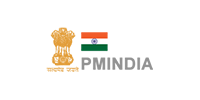Rural women form the most productive work force in the economy of majority of the developing nations including India. Agriculture, the single largest production endeavour in India, contributing to 16% of the GDP is increasingly becoming a female activity. Agriculture sector employs 80% of all economically active women; they comprise 33% of the agricultural labour force and 48% of self employed farmers. About 18% of the farm families in India, according to NSSO Reports are reported to be headed by women. Beyond the conventional market – oriented, narrower definition of ‘productive workers’, almost all women in rural India can be considered as ‘farmers’ in some sense, working as agricultural labourers, unpaid workers in the family farm enterprises or combination of the two.
Women in Agriculture are generally not able to access extension services and production assets like seed, water, credit, subsidy etc. As most of them are not recognized as farmers for want of ownership of land, they are not considered as beneficiaries of various government programmes / services. The wage differentials between men and women being adverse to them, the situation is further aggravated. Some of the tasks performed by the women are not valued adequately and considered less important economically.
Further, due to multiple roles that a woman has to perform within the family and the farm, her access to knowledge and information, is constrained and therefore her opportunities get limited. To improve the present status of women in Agriculture, and to enhance the opportunities for her empowerment, Government of India has announced “Mahila Kisan Sashaktikaran Pariyojana” (MKSP), as a sub component of the National Rural Livelihood Mission (NRLM) and decided to provide support to the tune of Rs. 100 crore during 2010-11 budget.















